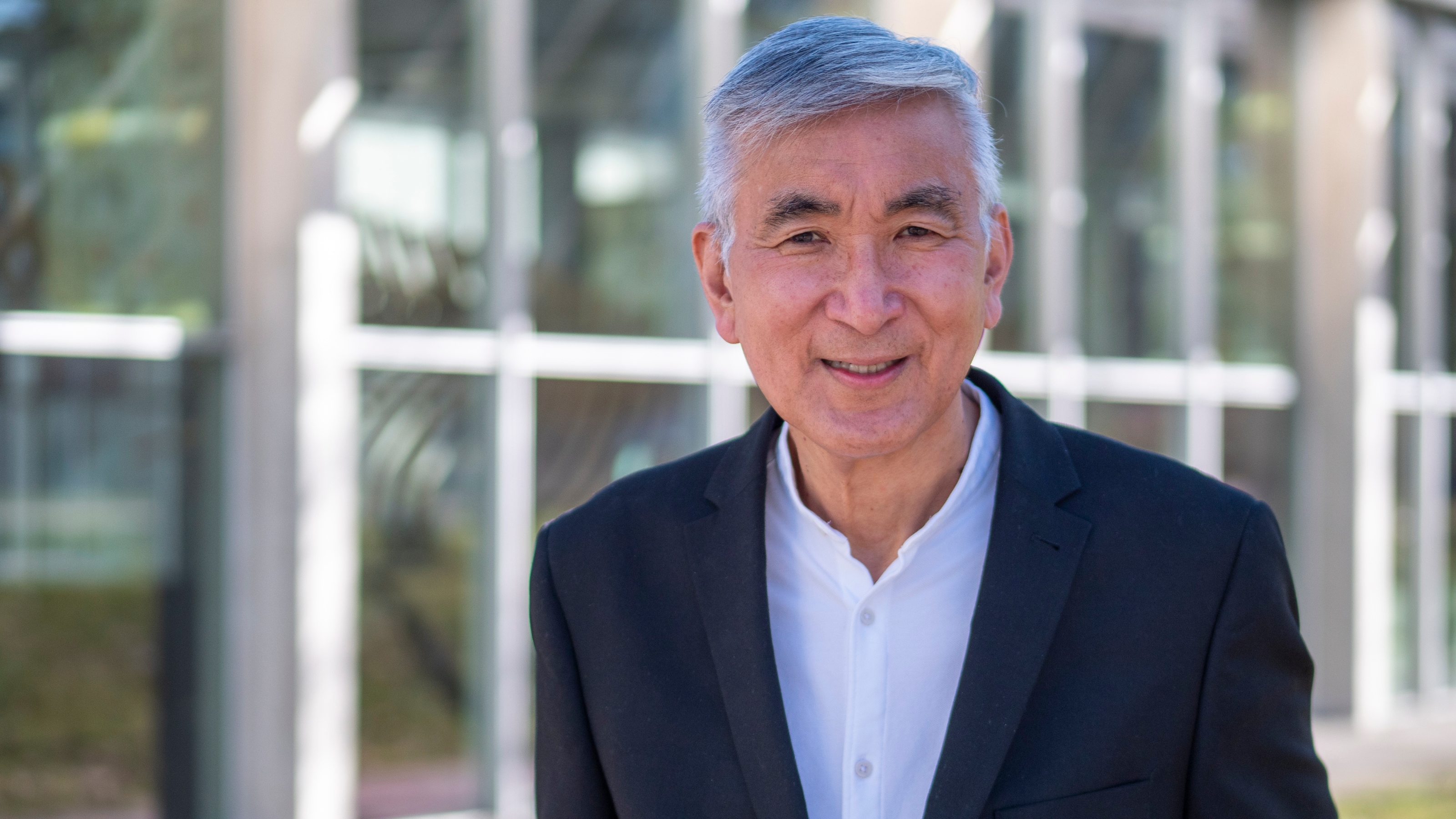New dean excited about the potential of ALES
Bev Betkowski - 12 November 2024

Pondering a medical degree as a first-year science student many years ago, it didn’t take Rickey Yada long to change his mind.
“We were dissecting frogs in biology class, and I just about passed out … I thought that wouldn’t be a good thing for a doctor to do during surgery, so it got crossed off the list,” Yada, then enrolled at the University of British Columbia, recalls.
He switched to microbiology, but cleaning out his desk at the end of third year, he knew it just wasn’t for him and was considering “bailing out” when he found a letter he’d shoved in a drawer and forgotten.
“It was from the food science department chair, trying to recruit students. Knowing these were my formative years for the rest of my professional life, I paid him a visit.”
It gave Yada, new dean of Agricultural, Life & Environmental Sciences (ALES), a sense of excitement for how he could work to put science into practical action.
“He told me it was the application of science to food, and I loved it, because I realized you could actually get your hands around something and see how a theoretical concept is applied.”
That same passion for real-world relevance is what drew him to ALES. “This is a faculty that, through its diverse disciplines, helps people every day.”
Working with faculty, students, alumni, staff and community and industry partners, Yada plans over his five-year term to expand the impact of ALES.
“I want to help the faculty define its ‘north stars’ that people can shoot for, to help find those focal points to help build community.
“When people think of agriculture, forestry, food science, nutrition and dietetics, resource economics or human ecology, they think of the U of A, and we want to make sure they know that ALES is the best in those areas. With our many talented and dedicated researchers, students and staff, we have the ability to define what we do very well.”
With an extensive academic and administrative background, Yada is a natural fit for ALES. He earned degrees in food science and agriculture at UBC, then went on to the University of Guelph, where he earned a Canada Research Chair in Food Protein Structure. He also served there as a department chair, assistant vice-president of research and scientific director of the Advanced Foods and Biomaterials Network, part of the Networks of Centres of Excellence program. He eventually circled back to UBC to serve for a decade as dean of the Faculty of Land and Food Systems.
“Those experiences all deepened my understanding of agriculture in its full spectrum,” he says. “As a food scientist, I interacted with experts in soil, plant, environmental, animal and social sciences, and really gained an appreciation of interdisciplinary approaches.”
In step with the university’s Shape: A Strategic Plan of Impact 2023-2033, Yada plans to “build bridges” that foster cross-collaboration and hone areas of excellence within the faculty.
“The role of any dean or leader is to identify those opportunities and facilitate success. I love putting people together, and in that role you have the ability to make that connectivity.”
As a research powerhouse with expertise across the human experience, the faculty has limitless potential to continue creating innovative solutions, he adds.
“With disciplines ranging from textiles to forestry, for example, could we use water products from the forestry industry to develop new clothing material with antimicrobial qualities? These kinds of interdisciplinary synergies bring the best to the table in very specific areas.”
Continuing to offer students the very best in experiential learning – as demonstrated by recent Student Experience Action Plan survey results – is also an important focus for Yada.
“ALES is a premier faculty in providing real-life learning to students in many of their classes on both our campuses, by rolling up their sleeves to get their hands dirty. We’re continuing to provide that excellence — and to make it fun along the way — with new initiatives like our Dean for the Day competition, which gives them an inside look at a leadership role.”
As he settles into his work, Yada has been warmed by the welcome he’s receiving from everyone, including the active and dedicated community of ALES alumni.
Connecting with many of them during Alumni Weekend this fall, he was struck by the passion they have for their varied careers in agriculture, conservation sciences and human ecology — or as they know it, home economics.
“Many of them have been very successful, and I was just amazed at how well connected they remain to the U of A. We’ve been able to show them the value of ALES in their success, and we’ll keep doing that.”
In turn, Yada believes alumni, including more recent graduates, are crucial to the continuing success and growth of ALES, and to that end, he’s eager to more closely engage young alumni.
“As a faculty, it’s important to keep them updated on what we are doing. And through their involvement in constantly changing, high-tech industries, they can help identify new opportunities.”
As he continues to introduce himself across the ALES community, Yada looks forward to contributing to “making the faculty the best it can be.
“We have a collective potential that’s exciting for a new dean.”